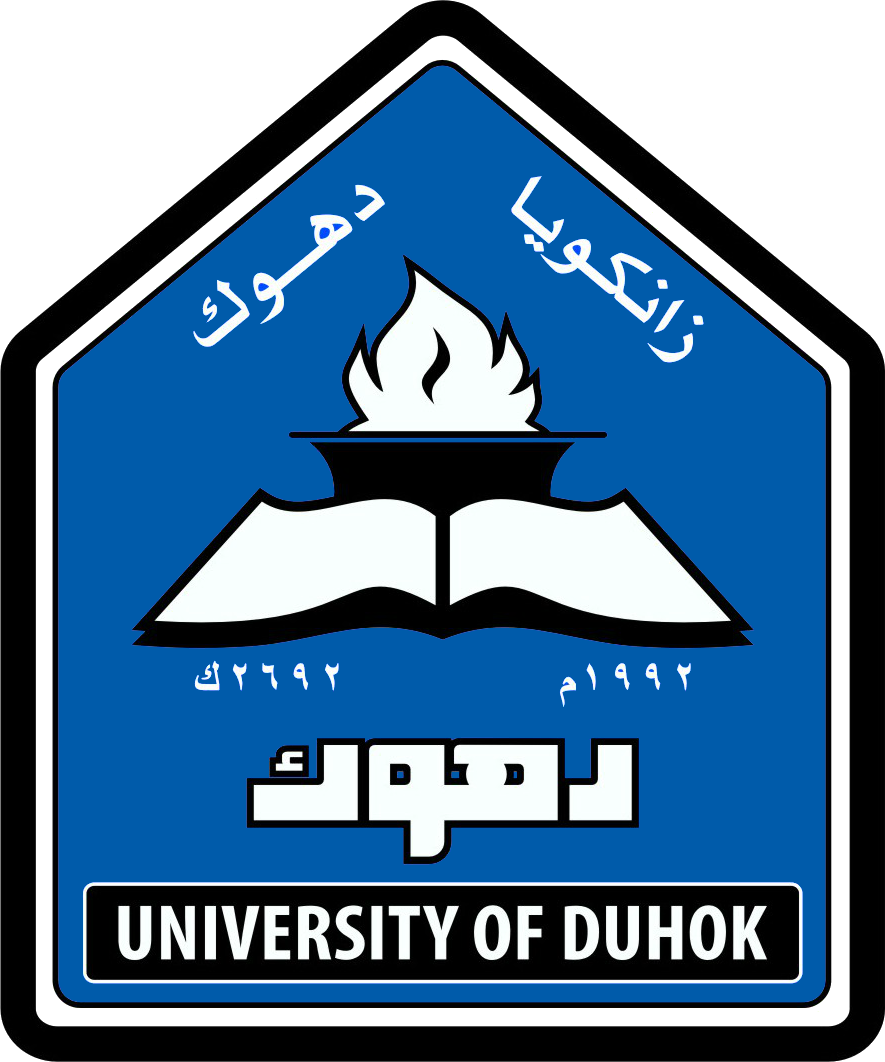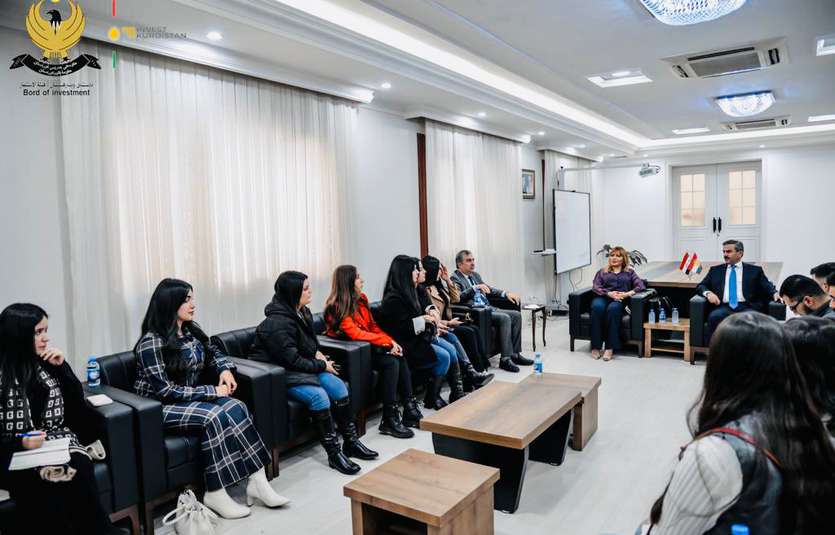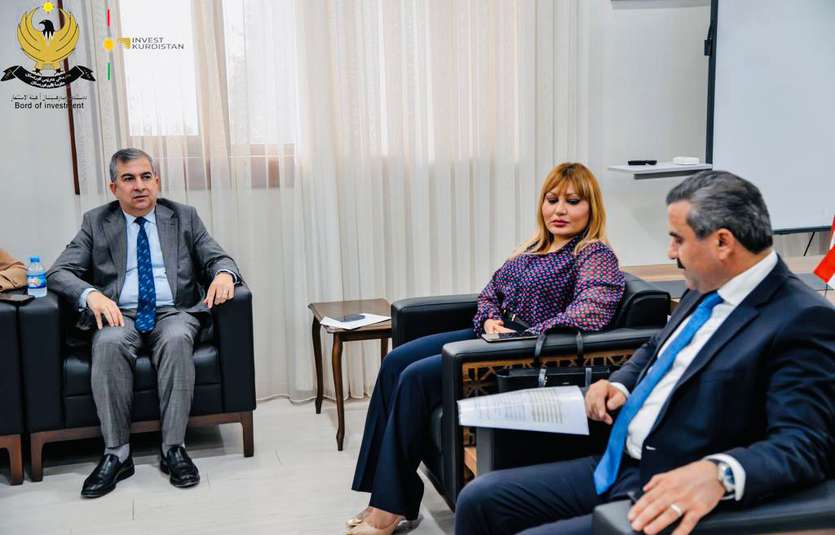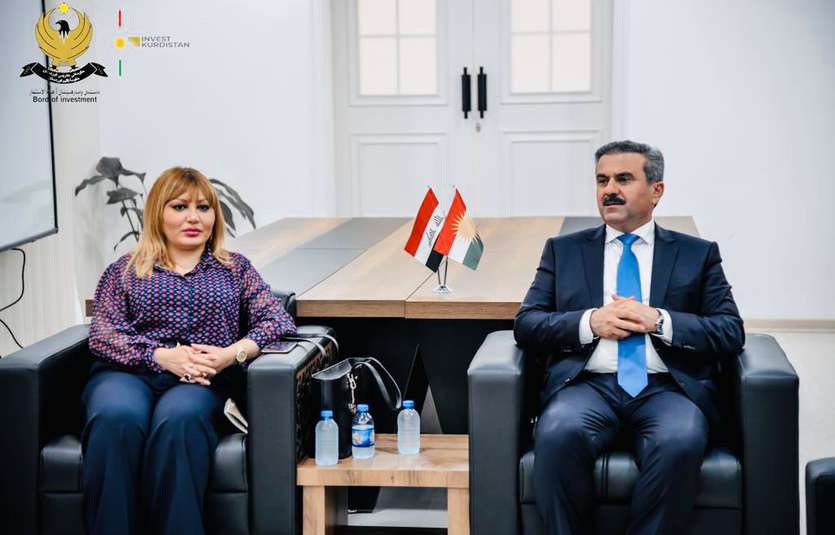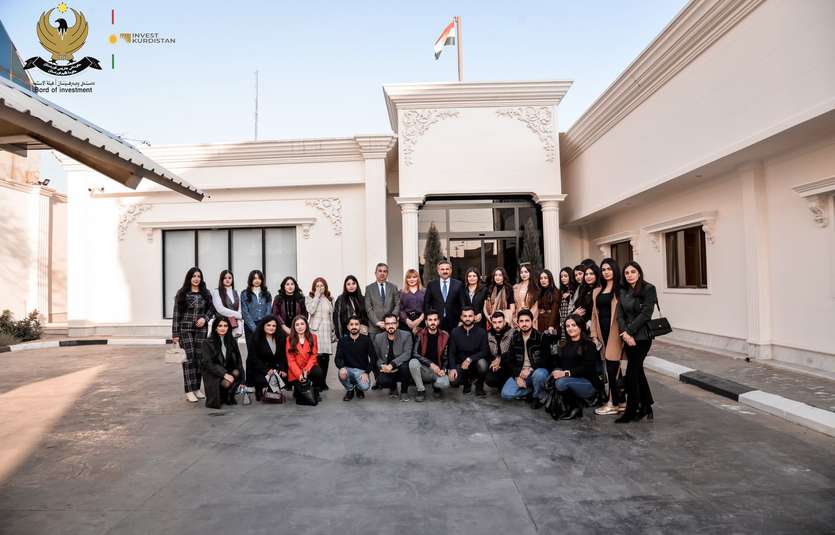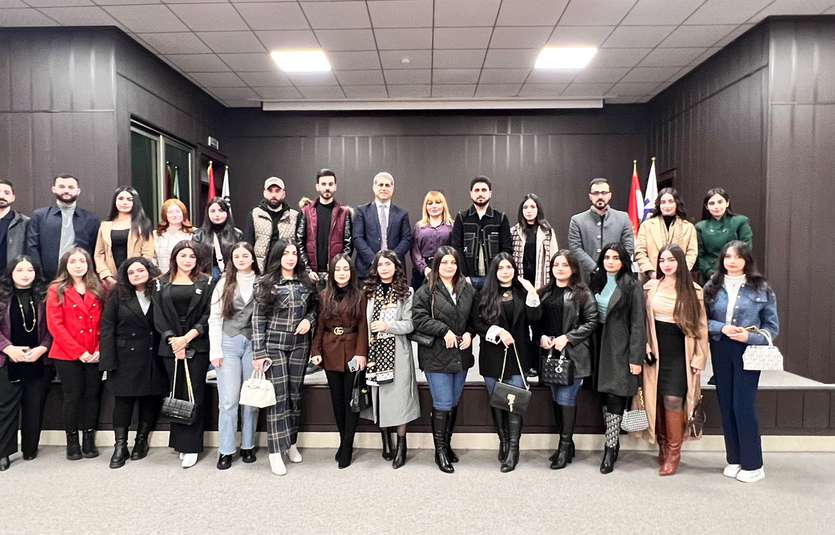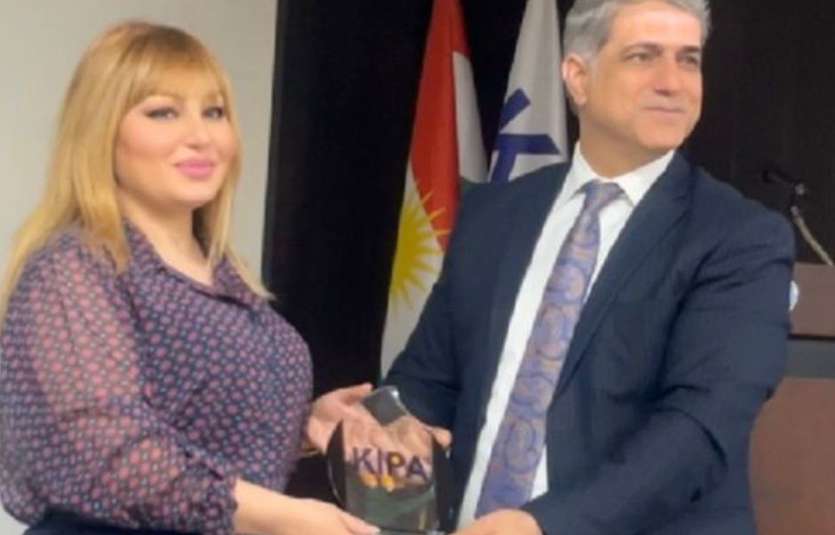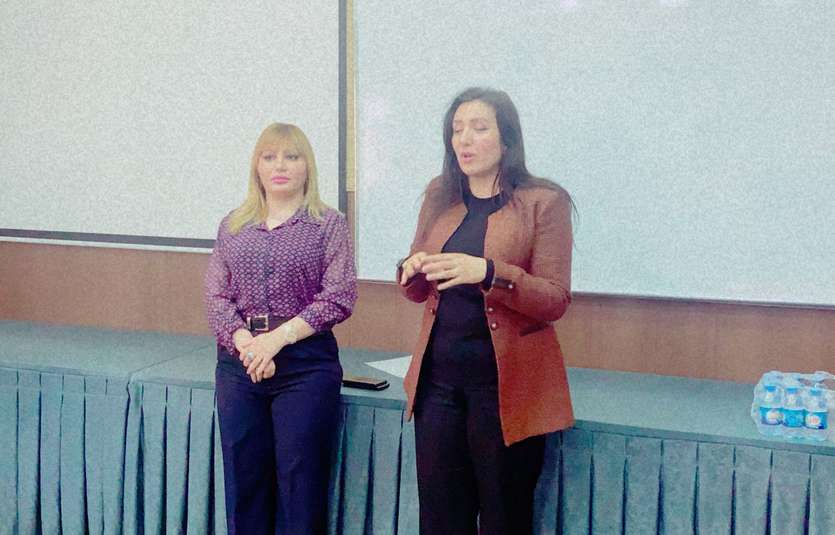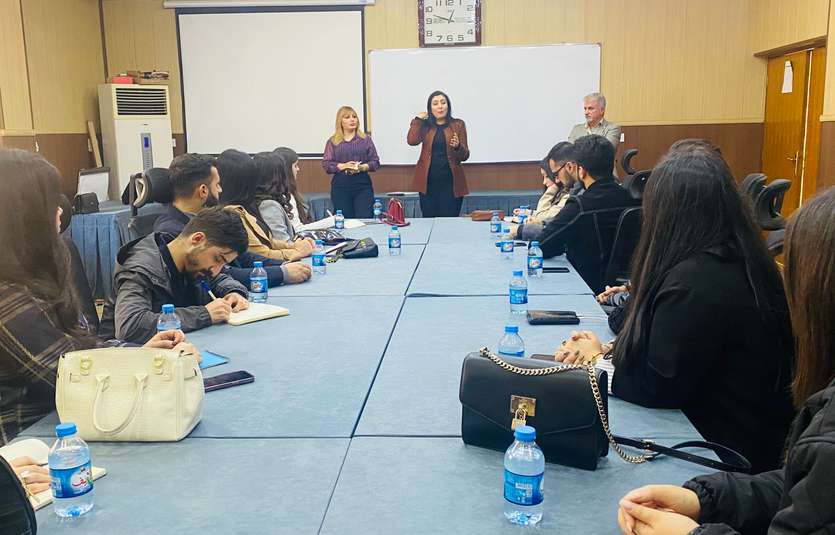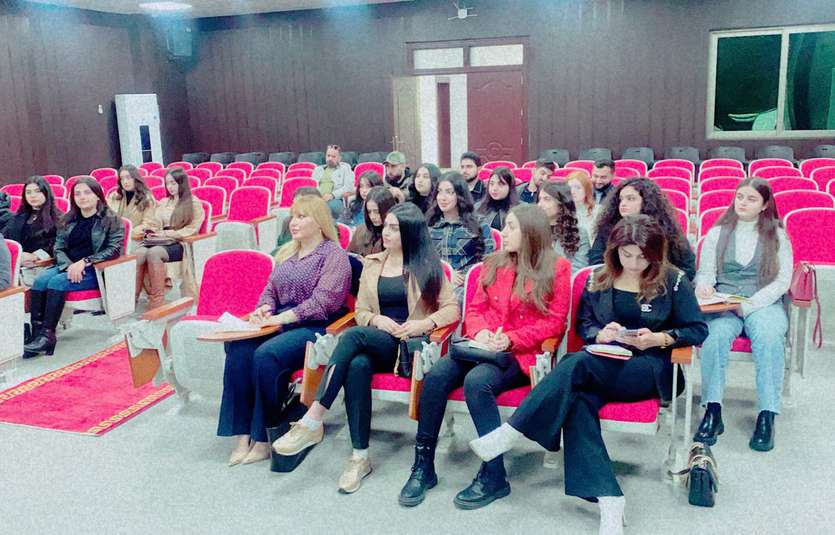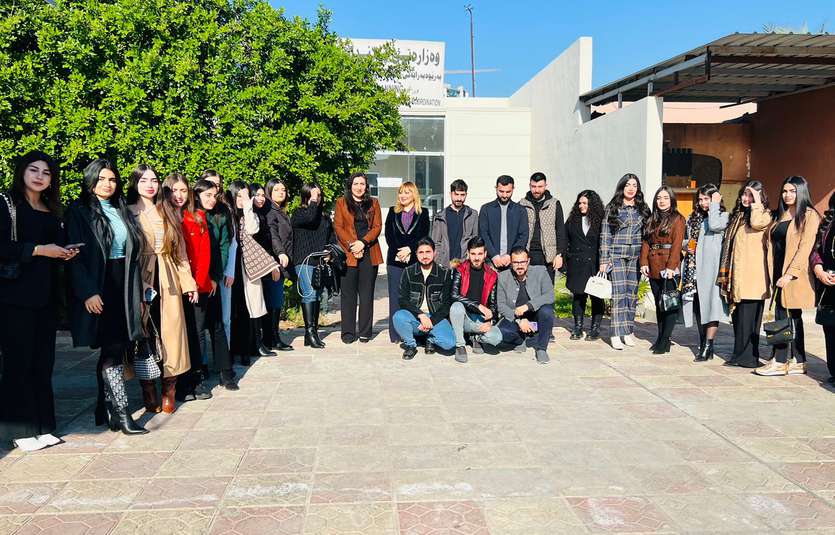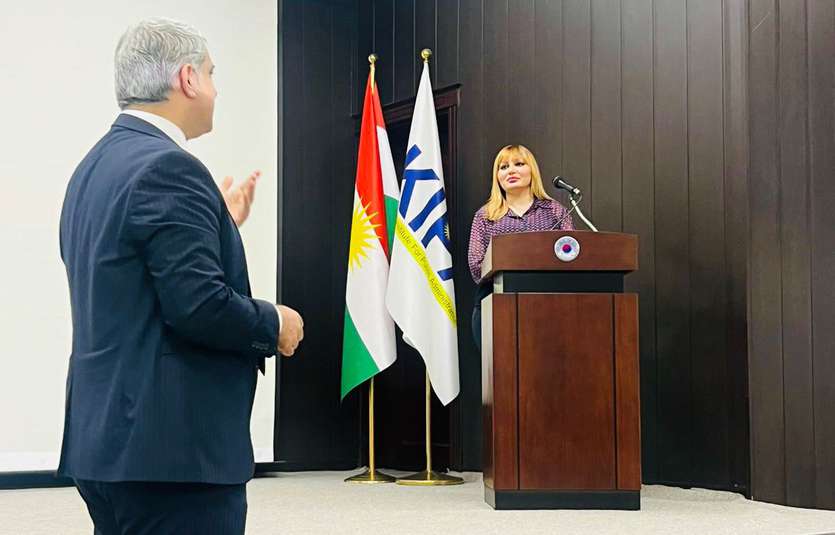College of City and Regional Planning
Spatial Planning Scientific Trip to Erbil:
Dr. Aihan Jamal and the 2nd & 4th Year Spatial Planning Students.
The planning and Governance course and Planning Law in Iraq are the main courses that had been given to the 2nd and 4th year Spatial Planning students. A scientific excursion had been arranged by Dr. Aihan Jamal for these two stages to Erbil on December 19. 2023 in orders get familiar with the Kurdistan Regional Government’s policies and regulations, the authoritative decisions, functions, programs, plans and reform The visit consists of the following governmental offices: 1. Dr. Mohammed Shukri, Head of Board, Board of Investment 2. Dr. Haval Sadeeq Ismael Director of Investment office in Duhok City 3. Mr. Karwan Othman Omar. Director of Kurdistan Institute for Public Administration KIPA. 4. Dr. Kanar Fadhil Hidayat. Ministry of Planning in Erbil the director General of Development Cooperation and coordination The aim of visiting the following public institutions are as follows:
- Board of Investment in KRI
The board of investment has prepared two types of plans for the future development of the Kurdistan region of Iraq:
• The first type is investment through projects for the region's economic benefit and market flow.
- The second type is sustainability through environmental planning such as green belt and other means of environmental consideration that was not previously practiced.
The board of investment provided the delegation with the latest statistics in 2023 and has permitted 1,176 projects in total but there are currently only 1,084 projects in operation, meaning that the rest have been canceled due to improper responses or not applying instructions from the board. The board of investment extends into four different agencies which are:
⁃ Law agency
⁃ Evaluation and Licensing agency
⁃ Research and Information agency
⁃ Municipality and Industrial zone agency
All the mentioned agencies have their own manager and system. However, the agencies and the board of investment itself work together under the supervision of the general manager Dr. Mohammad Shokri.
- The Process plan of Project Acceptance by the Board of Investment:
The process of accepting projects is that the investor has to provide a detailed proposal with the project duration, expected budget, time allocation, and other guidelines that should be available for the acceptance of the project. Furthermore, the project outline is shared with other governmental agencies in order to allocate resources for the project's success. This stage of initiating projects includes 16 agencies in total that provide the required resources such as land, electricity, water, environment, and infrastructure.
Finally, the investors have to deposit money in the bank for guarantee, as well as signing off on official documentation called "red paper". The documentation, along with providing the registration number, falls under the responsibility of Mr. Mohammad Shokri, the head of the KRG's Board of Investment.
- Future plans
Regarding the 2023 plans the Board of Investment has installed a unit specifically for international investors. Kurdistan has opened its doors to all investors that are willing to increase investment for the region, such as the recent success of exporting pomegranates.
There are also plans to export more local products with three factories that are producing flour, and wheat. One of those factories, called Xoshnaw, is located in Erbil, Duhok, Qeywan, and also Sulemaniyah.
Other plans of KRG's Board of Investment include allocating 16 locations for industrial use, such as occupying 800 dunams in Zaxo, as well as in Duhok, Erbil, and Sulemaniyah. Another one of their plans is to create a new metropolitan settlement in close distance to Mosul Dam. It is said to be 1,020 dunams that will include commercial, industrial, residential, tourism, and recreation areas. This plan had been set for the upcoming 10 years.
Finally, there's a very crucial plan in consideration for Kurdistan which is the plan for train transportation.
The Kurdistan parliament and Board of Investment is working to possibly get the Iraqi train line to reach Kurdish territories starting from Summel to Duhok then going off to Mosul, Kirkuk, Erbil, and Sulemaniyah. This plan is under the control of foreign companies and investors that will be providing the detailed design and infrastructure to complete the project.
- The objectives of visiting the Board of Investment are:
- Investment Opportunities: Explore potential projects and sectors for investment, understanding the current market landscape.
- Regulatory Guidance: Seek clarification on investment regulations, incentives, and any legal requirements for setting up or expanding business operations.
- Policy Insights: Gain an understanding of the government's economic policies and how they impact investments, ensuring alignment with business strategies.
- Networking: Establish connections with officials, industry experts, and other investors to foster collaborations and partnerships.
- Risk Assessment: Assess the risks associated with investments in the region, including political stability, economic factors, and any potential challenges.
- Incentive Programs: Learn about any incentive programs or tax benefits offered by the government to encourage investment in specific sectors.
- Infrastructure and Facilities: Evaluate the available infrastructure and facilities that support business activities, ensuring they meet the requirements of the proposed investment.
- Environmental Impact: Understand any environmental regulations and assess the environmental impact of potential projects, aligning with sustainable business practices.
- Market Research: Obtain market intelligence to make informed decisions, considering consumer trends, competition, and the overall economic outlook.
- Project Approval Process: Familiarize yourself with the procedures and timelines involved in obtaining approvals for investment projects, ensuring a smooth process.
And the specific objectives may vary based on the nature of your business, industry, and the country's economic context.
2. The Ministry of Planning in Erbil KRI
The Director General of Development Cooperation and Coordination typically oversees the planning, implementation, and evaluation of development projects. They coordinate activities, collaborate with partners, and ensure alignment with organizational goals for effective development outcomes
The Ministry of Planning in Erbil was visited by students and college professors from the department of spatial planning on December 19, 2023. in the collaboration with relevant ministries, the students have come to understand the crucial role that the ministry of planning plays.
In addition, the ministry of planning is in charge of providing an analysis of the statistics that the Regional Statistics Authority receives. Moreover, is responsible for establishing new funding and donation sources, including the private sector, foreign and domestic investors, implementing a national system of standardization and quality control based on Iraqi and international standards, managing and communicating the nation's resources, providing information on government investment projects, preparing overall plans for the government workforce, increasing productivity, and incorporating e-government, and developing new sources of funding and donations, and examine the jewelry that is imported to the region, follow up on it, and grant jewelry licenses.
The minister, deputy minister, advisors, and all of the staff members who work there have thoroughly defined the ministry's rules, regulations, research, and reports that are all published on the main website of the Kurdistan regional government. By this, it demonstrates how the ministry is using the transparency into their governmental structure.
Furthermore, Mr. Karwan Othman Omar, director of the Kurdistan Institute for Public
Administration (KIPA), has described the function of the planning ministry in setting up training programs at KIPA for government employees as well as the procedure for instructing government employees in public contracting and procurement. These helpful training sessions are held in the planning ministry’s seminar room. This project of training was formed through the international corporation agency KOICA, the republican of Kuria and the Kurdistan regional government have been cooperating on this project since 2017 till now.
In addition, Mr. Karwan the importance of capacity building, soft skills, and technological skills emphasized through the training courses for the employees, and then how these employees transfer these skills to their governmental institutions.
Eventually, Mr. Karwan has answered all the students’ questions regarding the planning, governance process, decentralization, projects, sustainability, and connectivity of the ministry with the other institutions, challenges and difficulties that face the ministry, and many other questions that were all clearly answered and explained by him and Dr. Kanar. In the end, the students and the professors have expressed gratitude to the efforts of the Mr. Karwan in this mission, and they took a memorial picture together.
- The objectives of visiting the Ministry of Planning, potential objectives may include: 1. Policy Insights: Gain a deep understanding of the government's economic and development policies to align business strategies accordingly. 2. Development Plans: Explore the national development plans to identify areas of focus and potential opportunities for collaboration. 3. Infrastructure Projects: Learn about upcoming infrastructure projects and initiatives to assess how they might impact business operations. 4. Public-Private Partnerships: Discuss opportunities for public-private partnerships that can contribute to national development goals. 5. Government Priorities: Understand the government's priorities and key focus areas, ensuring your business initiatives align with national objectives. 6. Regulatory Environment: Seek insights into the regulatory environment related to planning and development, ensuring compliance and understanding potential regulatory changes. 7. Data and Statistics: Access relevant economic data and statistics that can inform business decisions and market assessments. 8. Social and Environmental Policies: Discuss social and environmental policies to ensure that business practices align with sustainable and responsible development goals. 9. Community Engagement: Explore avenues for community engagement and corporate social responsibility initiatives that contribute to local development. 10. Funding Opportunities: Inquire about potential funding mechanisms, grants, or support programs available for projects that align with development priorities. The specific objectives can vary based on the nature of your business, industry, and the context of the country's development goals and policies.
